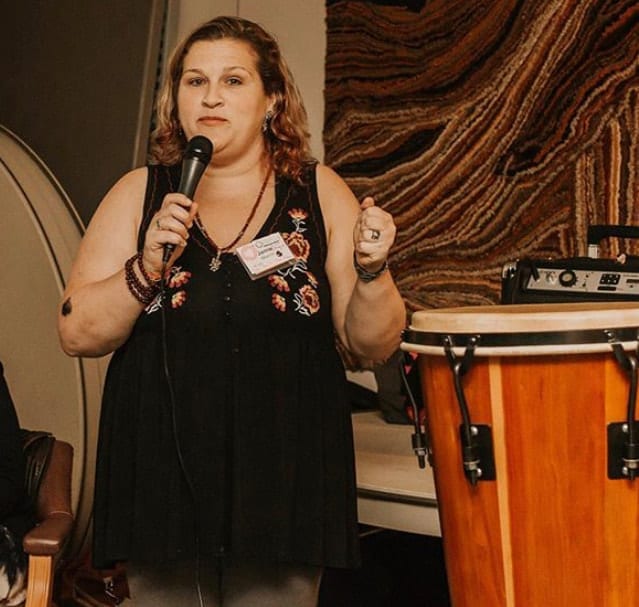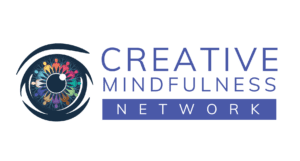Any previous interactions I had with this teacher attempting dialogue could be described as a barrage of interruptions and mansplaining as a response to my questions. On the day I finally spoke up with the fullness of my voice, I first asked to be listened to without being interrupted. When he nodded his head in agreement, I launched into my criticism, addressing trauma dynamics from a personal, professional, and spiritual perspective. After the very intense course session ended, many women approached me and remarked on my bravery and courage by speaking up in that way. One even called me heroic.I appreciated them honoring me with their compliments and realized that giving voice to many of the things they also wanted to say may be the only good that came out of publicly challenging this man. Yet something bothered me—why do we still conceptualize it as brave for women to speak up to men? Especially when we are challenging their inaccuracies or blind spots in public discourse? Bravery suggests staring fear in the face when taking on a task that is new and radical. I long to live in a world where how I spoke up to a male is regarded as the norm, not as a groundbreaking act or heroic feat of courage.
How do we, as women, make this happen and continue a very necessary paradigm shift that the #MeToo movement and the work of other advocates began? To be proactive, it is not enough to look up to the outspoken women that we admire, especially those that have a public stage. We must also begin to make small changes at a micro level, in the theater of our daily lives, if significant change is to happen culturally.
A first step is to begin examining our speech on our day-to-day basis—are we speaking like we have something to apologize for? Are we constantly tentative, inflecting our sentence endings, making everything sound like a question? Do we insert nervous words and phrases such as like, you know, you know what I mean?, we’re gonna, okay, just wondering, but anyway excessively? Do these patterned ticks hamper the impact of what we need to say? Does sinking into a higher pitch feel comforting when we are uncertain? Do we say what we mean at the appropriate times, or are we constantly censoring ourselves?
Sure, holding the tongue may be appropriate in certain societal contexts, and speaking with kindness may be an important part of our value system. Yet what do we do with the thoughts, feelings, sensations, and words that we’re holding on to? Do we swallow them, allowing them to fester, playing out in the body or in a variety of other emotional distress symptoms? Or do we find another outlet at a more appropriate time to express them? And if we are constantly censoring our expression, especially in speech, what is the reason? Are we afraid of being perceived a certain way (e.g., disrespectful, unladylike, aggressive, bitchy)? Do we fear that others may withhold affection and regard from us if we speak up and claim the fullest expression of ourselves? Does the high, demure pitch seem to get us somewhere, especially with men? Men who we want to love us, admire us, respect us, or perhaps simply take us seriously?
I realize that I am asking many questions here and not providing any concrete answers. As a professional speaker, I’ve learned to constantly engage in self-inventory using these questions. At least once a year I make sure that I listen to a public recording of myself giving a talk and notice what I notice about my patterns of speech and expression. About five years ago, I was horrified to hear how much I used the phrase you know in a day-long course. The constant use of this nervous phrase made me seem less sure of myself and my message. I made a point to look out for it in future talks. I still have a tendency to slip into the you knows from time to time, and now I have the awareness that it’s typically a sign that I’m nervous or I’m doubting myself. To combat this issue, I make sure that I take more time to ground every morning before I face the day, especially if I’m teaching or giving a talk. I also make more spaces to deliberately breathe when I am speaking, as it keeps me in a calmer flow and less likely to sink into the uncertainty…which inevitably translates into my voice. Of course, the deeper work of therapy, other healing practices and setting boundaries in my life has also facilitated a greater sense of flow and strength in my speech.
As a writer, I’ve also noticed and actively addressed similar patterns. In 2012, I wrote the first edition of a book called Trauma and the Twelve Steps: A Complete Guide to Recovery Enhancement. A publisher contracted me to write a second edition to this work, which is due out in 2020. As I went back through the first edition of the book to make edits and conduct rewrites, I was shocked by how apologetic I sounded in so many places, and how many qualifying phrases that I used to cushion my points (e.g., “This is just my opinion,” “In my personal experience, etc.”) Even though my writing is known for its bridge-building quality, it seemed as though I played it too safe, afraid that I would piss people off. I believe there is an art to not tearing into people. After all, if I chew off their heads, metaphorically speaking, how will they have ears to hear me? Yet in this second run through the book, which also reflected an additional seven years of healing, recovery, and standing up for myself, I was able to take out so many of those qualifying phrases and simply present my position. The book is filled with my personal experience, opinions, clinical perspectives, and voice. There is no need for me to keep saying that in order to soften the power of my message. A second step that we can take as women is to give our emails and written communication a closer look before clicking send. The same questions I offer for speech can also offer us insight for the written word. You may find that practicing with writing is a good training ground for addressing speech.
The more I’ve deepened my awareness about these issues of presentation, the more difficult it is for me to listen to other women speak to each other. Even as I write this piece at an airport during my travels, I can hear two professionally dressed women talking to each other from the row of chairs behind me. Even in casual conversations with each other, the pitch is high, there is an overabundance of like and just to cushion what we are saying, and every sentence can sound like an apology for existing, like we are walking on egg shells. In being attuned to this throughout my travels, I notice it from women of all backgrounds. Sometimes it’s so painful I have to put my earphones on at the airport or on planes just so I don’t have to listen to it. And before I come across as a totally judgmental human being, I admit–I still catch myself doing it with my own girlfriends. These tendencies are that ingrained. These tentative, feminine tropes are how we have been socialized to communicate with each other and the world.
Personally, I’ve had enough, and I make a commitment to stop talking to myself, to my fellow sisters, to men, and to the world like I have something to be sorry for. I deserve to say the things I must say, and I can release expectations of how other people will receive me. I know that this commitment will be a work in progress and I will slip into old habits. When this happens, I will be compassionate with myself and recognize when my friends and I may just be lighthearted or joking with each other. Yet I will take it seriously if it feels like I’m apologizing for speaking or taking up space. If more of us are willing to commit to this at some level, I believe a day will come that speaking up to men in power like I did to that teacher will be just another thing we do because we know that we are worthy and we will be heard.














